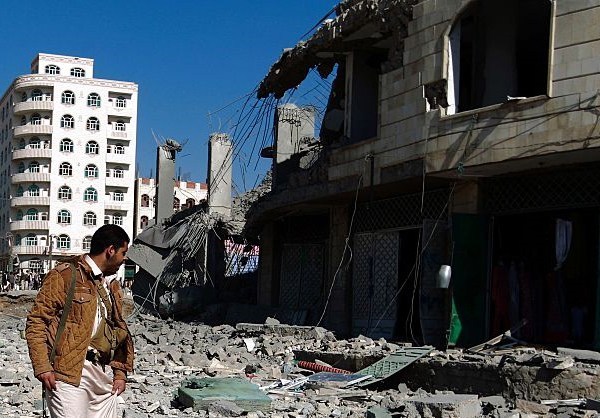
RNA - During a Friday panel discussion on Yemeni crisis at the Washington-based Middle East Institute, the United Nations Special Envoy for Yemen Ismail Ould Cheikh Ahmed said he was “extremely concerned” over a potential military operation on the vital Saudi port.
“We as the United Nations are advocating that no military operations should be undertaken in Hudaydah,” Ahmed said.
The warning comes days after the Saudi-led coalition, which has been engaged in a deadly military campaign against Yemen over the past two years, threatened to attack Yemen’s western port city.
Hudaydah is part of a broad battlefront where Saudi-backed forces are fighting the Yemeni army and its Houthi allies, which control most of northern and western Yemen.
This is while recent reports say Washington is considering a more assertive role in the war on Yemen by providing more assistance to the Riyadh-led military alliance by conducting an operation in Hudaydah aimed at removing the Houthi fighters and allied army and popular forces.
The previous US administration, which had been wary of operations involving the port, rejected a proposal by the Saudi Kingdom last year to assist a push to take control of the Red Sea port near the Bab al-Mandab strait, through which nearly 4 million barrels of oil are shipped daily.
The UN envoy further warned that any military action in the area would “need to take into account the need to avoid any further deterioration in the humanitarian situation.”
Despite repeated assaults and heavy bombardments, Saudi Arabia has failed to wrest control of the strategic port. On March 19, Riyadh called for jurisdiction over Hudaydah to be transferred to the UN.
The world body, however, flatly rejected the call.
The development came nearly two weeks after a reported Saudi strike hit a boat carrying 145 Somali refugees near the port, killing 42 and injuring nearly 30 more, prompting international rights group Human Rights Watch (HRW) to condemn the move as a “war crime.”
Riyadh and its coalition allies, however, have denied carrying out the airstrike despite witness accounts citing the involvement of an Apache helicopter - which is only used by Saudi Arabia in the war on Yemen.
Saudi Arabia launched a massive aerial aggression against neighboring Yemen on March 26, 2015, backed by a number of African and Persian Gulf Arab states, in an attempt to reinstate former president Abd Rabbuh Mansur Hadi, who is a close ally of the despotic kingdom, and to crush the popular Houthi Ansarullah movement.
The offensive has so far left over 12,000 Yemeni civilians dead, according to the latest tallies.
Ansarullah, backed by the army and popular forces, has been defending the nation against the destructive Saudi aggression, which has also given room to Takfiri Daesh and al-Qaeda militants to step up their terror activities across the conflict-riddled country.
Earlier this month, the World Food Program warned that the provinces of Ta’izz and Hudaydah risked slipping into famine if they did not receive more aid. The International Rescue Committee has said any attack targeting the port would disrupt port facilities and “have a catastrophic impact on the people of Yemen.”
847/940